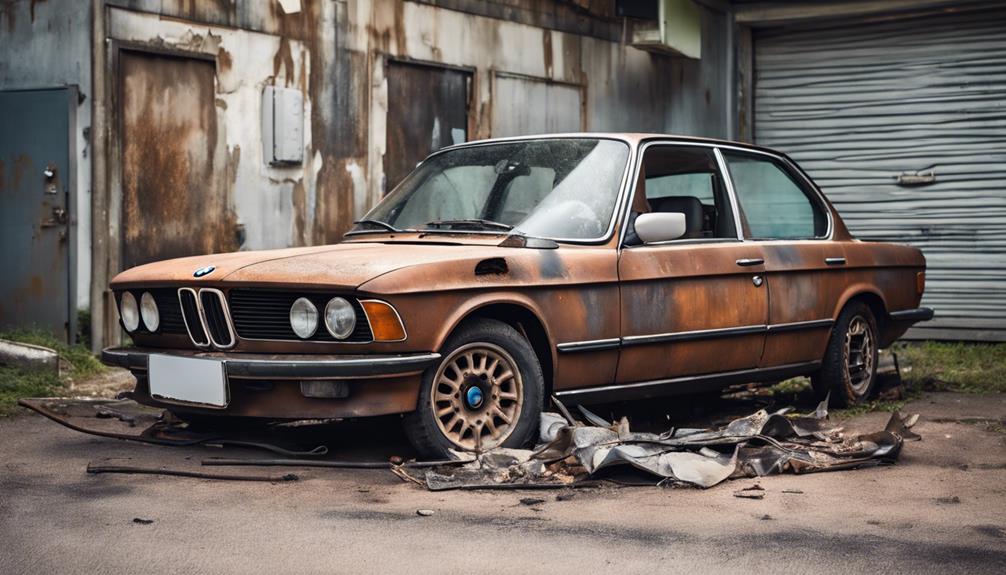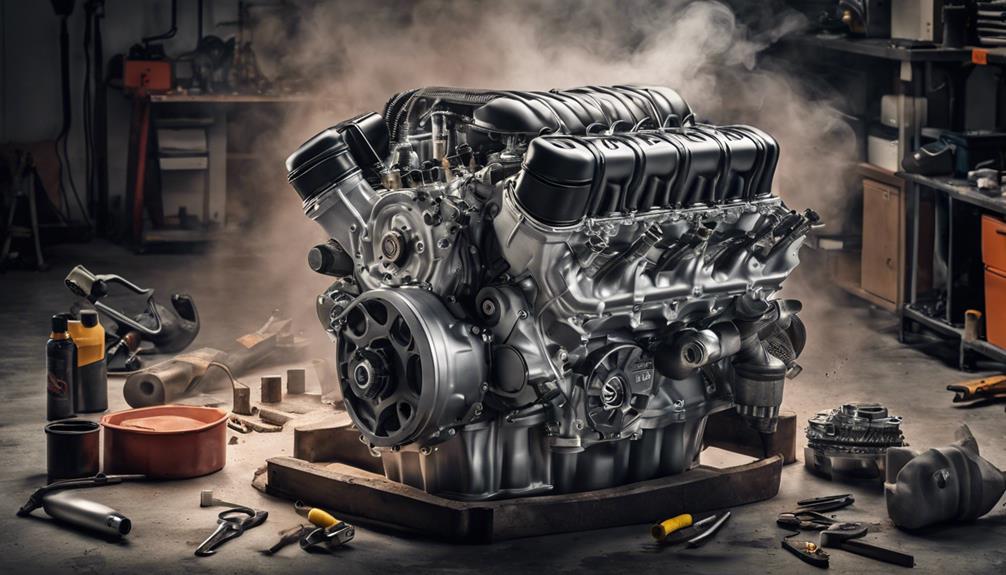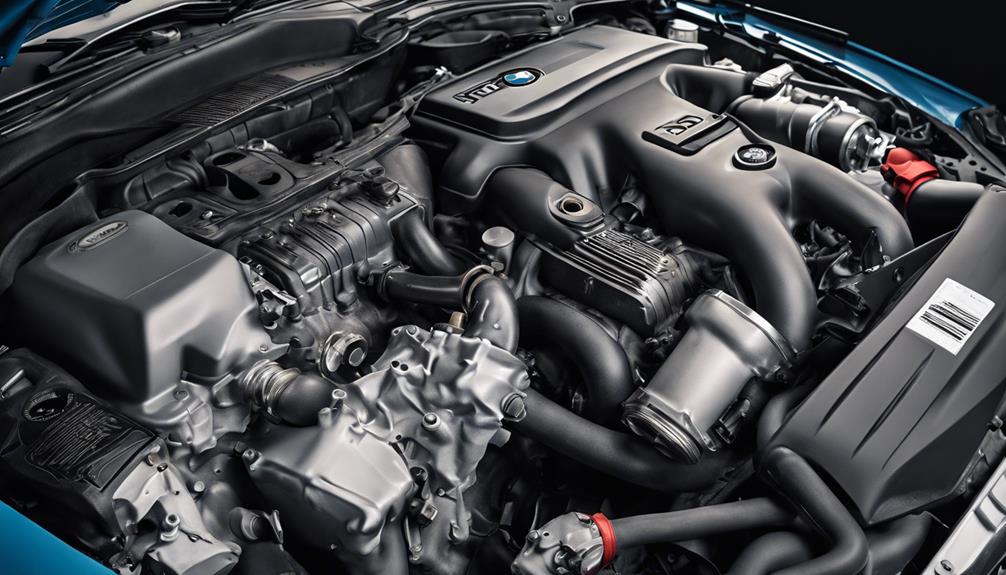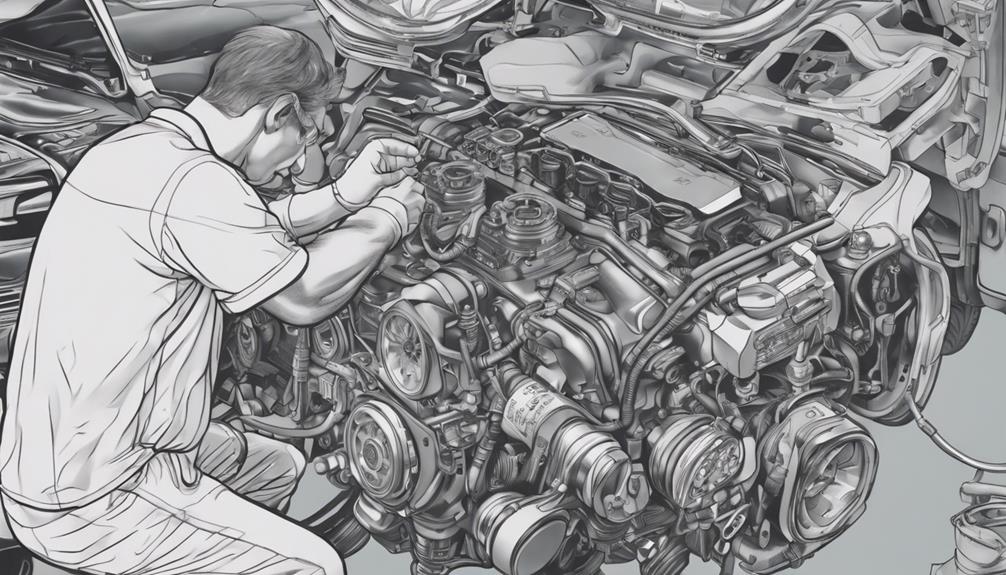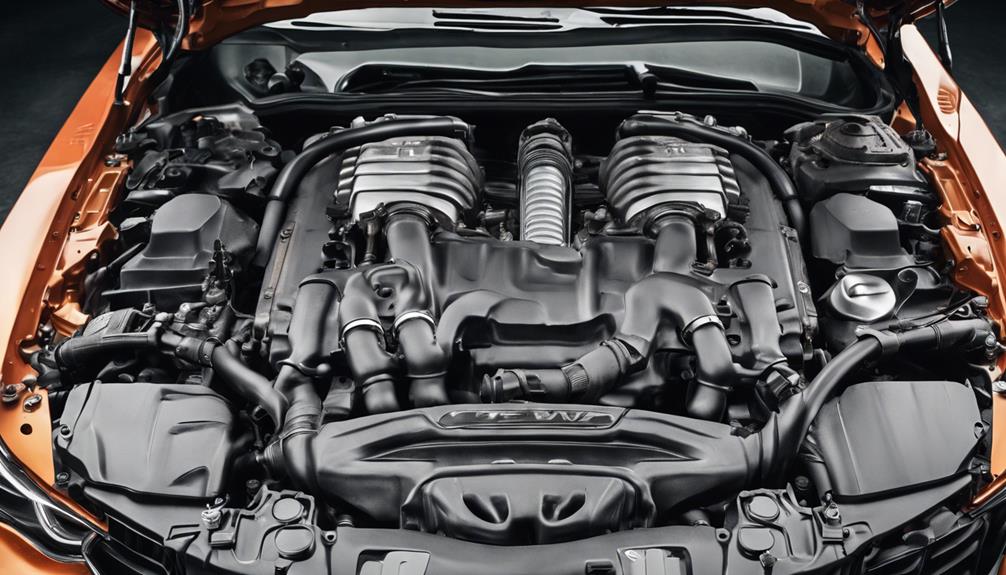Thinking of snagging a used BMW? Watch out for models like the X5/X6 and 7 Series with N63 engine troubles causing timing chain woes, oil leaks, and hefty repair bills. Keep an eye out for issues like battery decay, valve cover leaks, and direct injection system problems, which could lead to costly repairs. With potential risks of high maintenance costs and quick value depreciation, it's wise to stay informed before diving into that purchase. Ready to uncover more about the pitfalls of certain BMW models?
Key Takeaways
- Avoid BMW X5/X6 with N63 engine for common issues like timing chain problems and oil leaks.
- Be cautious with BMW 7 Series N63 engine models due to timing chain guide failures and oil leaks.
- Check for BMW models with known timing chain failures to prevent costly engine repairs.
- Beware of BMWs with battery and electrical system concerns to avoid performance issues.
- Watch out for direct injection system problems in BMWs like N54, N63, and N20 engines for oil leaks and injector failures.
BMW X5/X6 N63 Engine Issues
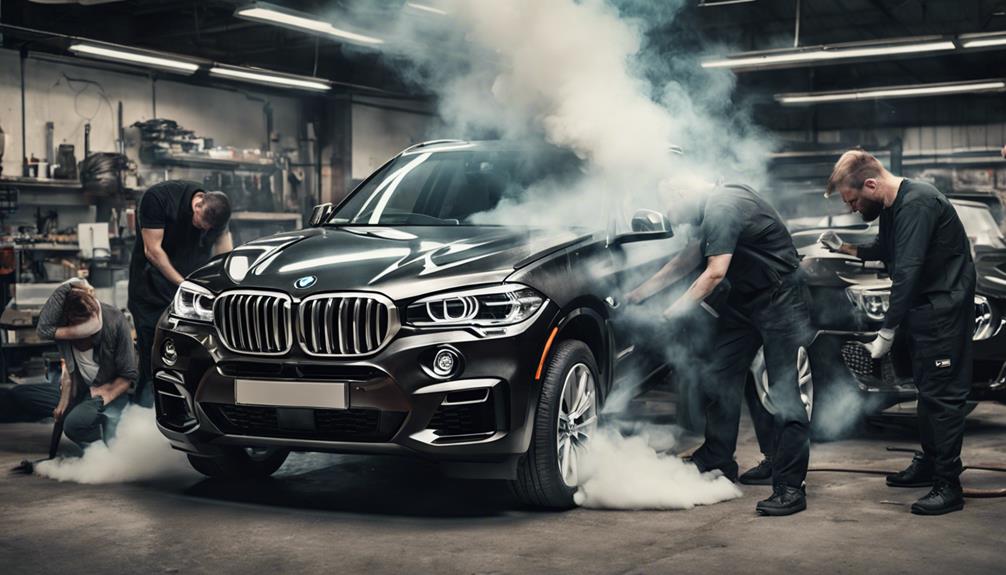
If you're eyeing a pre-owned BMW X5/X6 with the N63 engine, buckle up for a challenging journey through a maze of timing chain issues, battery troubles, and valve cover headaches caused by engine heat. These models are infamous for their oil leaks, adding to the long list of engine reliability worries. The 4.4-liter V8 twin-turbocharged engine in the X5/X6 may offer power, but it also brings along its fair share of maintenance hurdles.
Owners of these models often find themselves struggling with the consequences of oil leaks, which not only lead to messy driveways but also suggest potential underlying issues within the engine. The N63 engine's inclination for oil consumption can be a headache for those seeking a dependable ride. Keeping a close eye on oil levels and addressing leaks promptly is vital for maintaining the engine's longevity and performance.
When considering a pre-owned BMW X5/X6 with the N63 engine, be prepared to invest time and resources into addressing these oil-related concerns to ensure a smoother ownership experience.
BMW 7 Series N63 Engine Problems
Buckle up for another rollercoaster ride through engine woes if you're considering a used BMW 7 Series with the N63 engine, as it comes with its own set of notorious problems. This luxury vehicle isn't immune to issues like timing chain guide failure and pesky oil leaks that can leave you with a hefty repair bill. Here's a glimpse into what you might encounter:
| Common Issues | Description | Impact |
|---|---|---|
| Timing Chain Guide Failure | Known for causing engine rattling and potential catastrophic engine damage if not addressed promptly. | Expensive repairs, potential engine failure. |
| Oil Leaks | Owners often face leaks from various engine components, leading to low oil levels and possible engine damage. | Increased maintenance costs, engine reliability. |
When eyeing a used BMW 7 Series with the N63 engine, keep a close watch on these red flags to avoid being blindsided by repair expenses.
Timing Chain Failures
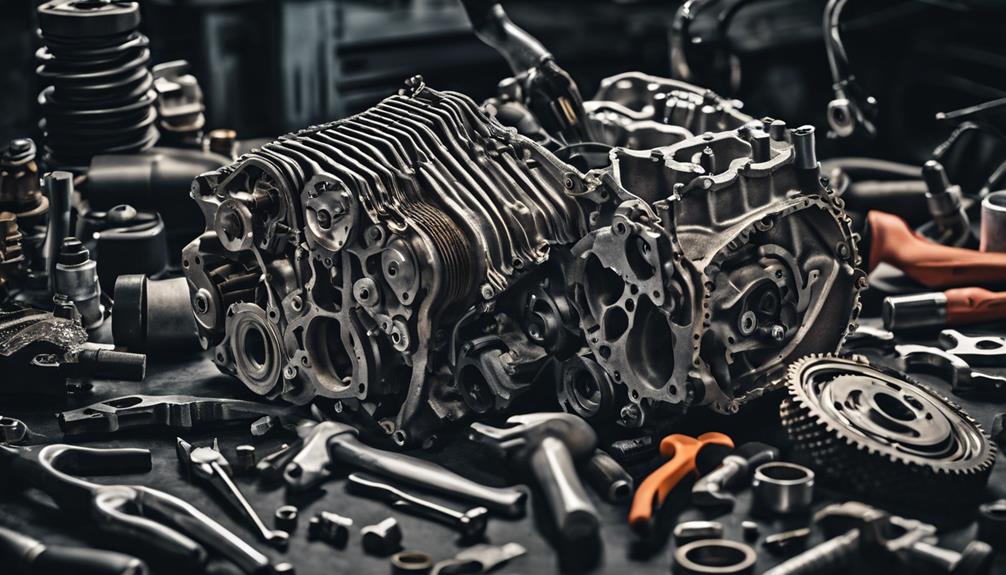
When facing the looming specter of timing chain failures in BMWs, prepare for a costly and potentially catastrophic engine ordeal. Timing chain failures are like that one friend who overstays their welcome – they bring misfires, rough idling, and unsettling rattling noises to the engine party. Ignoring these warning signs could lead to a financial nightmare, with repair bills ranging from $2,000 to $5,000 or more. Imagine your engine throwing a tantrum, demanding a full replacement because you didn't address its timing chain issues in time. It's like a drama-filled soap opera playing out under your hood.
To avoid this engine soap opera, make friends with regular maintenance and timely timing chain replacements. Treat your BMW's engine right, and it will purr like a content kitten instead of howling like a banshee. Remember, preventing timing chain failures is the secret handshake to belonging to the savvy BMW owner club.
Battery Deterioration Concerns
So, you're eyeing that used BMW, but have you considered the battery's age impact?
As these luxury vehicles boast high-tech features, battery deterioration could lead to pesky electrical malfunctions and performance hiccups.
Don't forget to factor in potential maintenance costs and replacement options that could set you back a few hundred bucks.
Battery Age Impact
Aging batteries in used BMWs pose a critical concern due to their increased likelihood of deterioration, impacting performance and reliability to a significant extent.
- Older batteries are more prone to deterioration, potentially causing starting and electrical issues.
- Deteriorated batteries can lead to problems with the vehicle's electrical systems, affecting lights, power windows, and accessories.
- Replacing an old battery can enhance overall vehicle performance and prevent unexpected breakdowns.
- Regularly checking and replacing the battery in a used BMW can help you avoid costly repairs and maintain smooth operation.
Ensuring your BMW's battery is in top condition is vital for a stress-free driving experience and avoiding inconvenient electrical mishaps.
Maintenance Cost Considerations
Considering the battery deterioration concerns in used BMWs, taking into account maintenance costs becomes an essential consideration for prospective buyers. Alongside potential oil leaks, battery issues can sneak up on you, impacting both the car's performance and your wallet.
Replacement batteries for BMWs can range from $200 to $400, varying by model, with a lifespan of 5 to 7 years. Factors like climate and driving habits play a role in how long your battery will last. To avoid unexpected breakdowns and costly repairs, regular maintenance and battery checks are vital.
Being proactive about maintenance can save you from the headache of dealing with electrical malfunctions down the road.
Replacement Options Available
When facing battery deterioration concerns in BMWs with the N63 engine, exploring replacement options becomes essential for maintaining peak performance and avoiding unexpected electrical issues.
Here are some replacement options available:
- Consider opting for high-performance AGM batteries to withstand the N63 engine's electrical demands.
- Explore aftermarket battery solutions that offer competitive pricing without compromising quality.
- Consult with BMW-certified mechanics for specialized battery replacements tailored to N63 engine models.
- Invest in trickle chargers or battery maintainers to prolong the lifespan of your new battery and prevent premature deterioration.
Valve Cover & Head Issues
Hey there savvy car shopper!
When it comes to used BMWs, valve cover and head issues can spell trouble with common seal leaks and risks of engine overheating. Keep an eye out for signs like oil seepage and that burnt oil smell, as they could indicate these problems lurking under the hood.
Common Seal Leaks
Amidst the complexities of BMW ownership lies a common concern: the tendency for seal leaks in the valve cover and head, often attributed to engine heat issues. When dealing with these leaks, it's vital to address them promptly to prevent further damage.
- Oil filter housing gasket leaks and valve cover gasket leaks are common culprits for seal leaks in BMWs.
- These leaks can lead to excessive oil consumption and potential engine damage if left unattended.
- Symptoms of valve cover and head issues include oil leaks, smoke, and decreased engine performance.
- Regular maintenance and inspections play an important role in detecting seal leaks early and avoiding costly repairs down the line.
Overheating Engine Risks
If you're eyeing a used BMW, be wary of the risks tied to overheating engines, particularly concerning valve cover and head issues that can impact performance and longevity. Overheating can lead to troublesome oil leaks and coolant leaks, potentially causing severe engine damage if left unchecked.
Models like the 5 Series and 750i with V8 engines, such as the N62 engine, are often susceptible to these problems. Excessive heat can warp, crack, or even lead to failure of crucial valve cover and head components.
To safeguard your investment, make sure to stay on top of regular maintenance and keep a close eye on engine temperatures to prevent overheating and mitigate the risks associated with these prevalent issues in used BMWs.
Excessive Oil Consumption
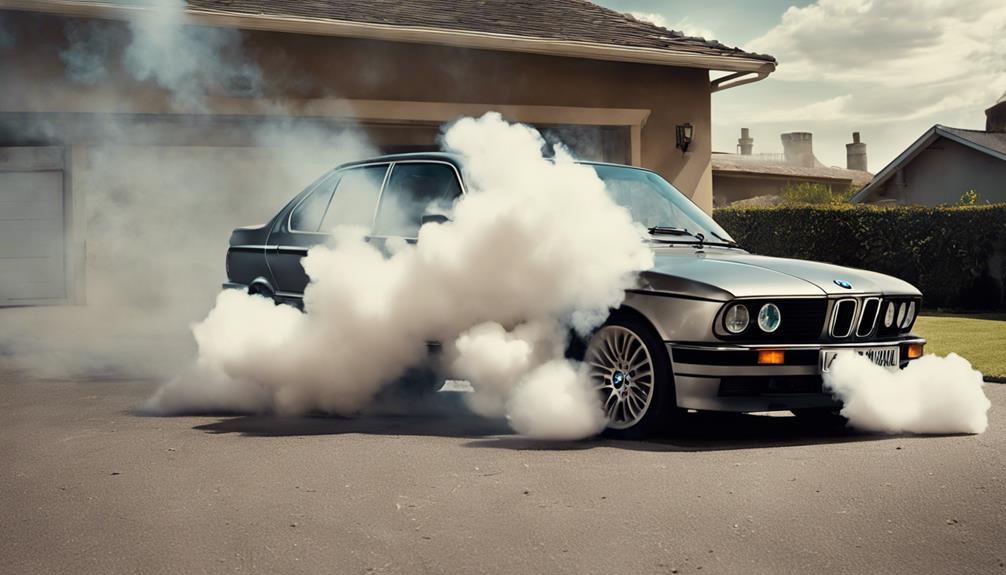
Experiencing sudden oil leaks or noticing unusual smoke from your BMW's exhaust could be early warning signs of excessive oil consumption, potentially leading to costly engine repairs. When dealing with excessive oil consumption in used BMWs, here are a few quirky but essential things to keep in mind:
- Regular Checks: Make it a habit to monitor your BMW's oil levels regularly, especially if you own a model known for higher oil consumption rates.
- Address Leaks Promptly: Don't procrastinate when you spot oil leaks; get them fixed promptly to prevent further damage and avoid costly repairs down the line.
- Watch for Smoke: Unusual smoke coming from your exhaust could indicate burning oil, signaling a potential issue with oil consumption that needs attention.
- Consult a Professional: If you notice a significant decrease in oil levels or suspect excessive oil consumption, it's best to consult a BMW specialist to diagnose and address the problem before it escalates.
Leaks & Injector Failures
When exploring the domain of pre-owned BMWs, be cautious of possible leaks and injector failures that could disrupt your driving experience and wallet.
Models with N54 engines are particularly susceptible to oil leaks from the valve cover gasket and oil filter housing gasket. These leaks can lead to severe engine damage if not addressed promptly. Injector failures in N54 engines are also common, causing issues like misfires, rough idling, and decreased fuel efficiency, necessitating costly repairs to restore peak engine performance.
In vehicles equipped with N63 engines, such as the BMW X5/X6 and 7 Series, oil leaks and injector failures are prevalent, impacting both engine reliability and performance.
The N62 engine, found in BMW 5 Series and 750i models, is known for oil leaks and injector problems that can potentially harm the engine.
Even the N20 engine, present in BMW X1, X3, 2 Series, and 3 Series, isn't immune, as it may experience oil filter housing gasket leaks and valve cover cracks, leading to oil leaks and potential injector issues.
Direct Injection System Problems
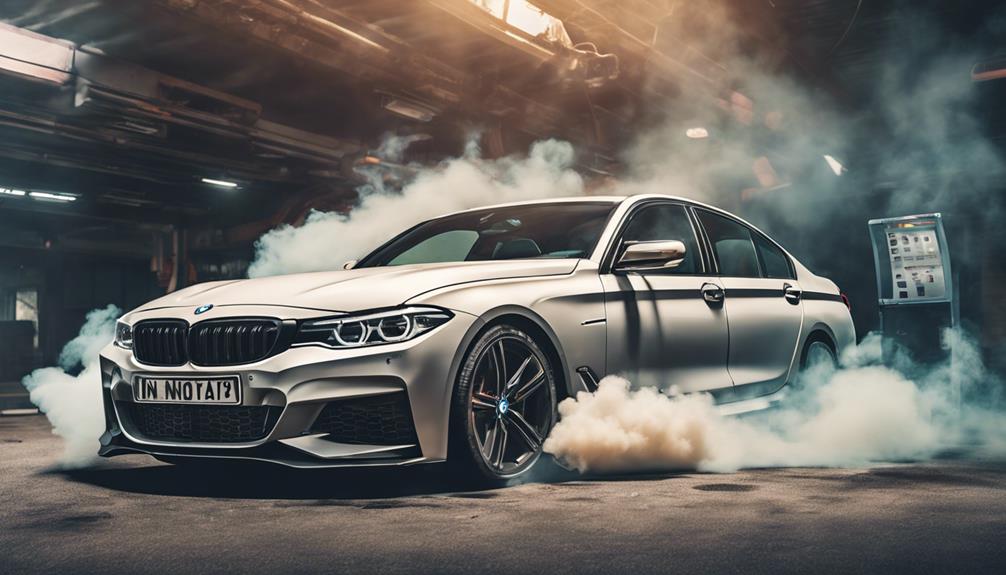
So, you've got a BMW with a direct injection system, huh? Buckle up because these systems can be a real headache!
From injector failures to timing chain issues, be prepared for some costly replacements.
Oh, and don't forget about the fun surprises like battery deterioration and leaks due to all that engine heat!
Direct Injection System Overview
If you're eyeing a used BMW with a direct injection system, brace yourself for potential woes like injector failures and timing chain hiccups lurking under the hood. These systems can be temperamental, causing headaches for unsuspecting owners. Here are some key points to keep in mind:
- Injector failures can lead to costly replacements.
- Timing chain problems are common and can be a source of major headaches.
- Battery deterioration is another issue to watch out for with direct injection systems.
- Valve cover and head deterioration due to engine heat can plague engines with this system.
Navigating these challenges requires careful consideration before committing to a used BMW with a direct injection system.
Common Issues Found
Amidst the world of pre-owned BMWs, deciphering the typical issues found with direct injection systems can be akin to solving an intricate puzzle of injector failures, timing chain woes, and battery deterioration awaiting the unsuspecting buyer.
One common issue that plagues these systems is oil leaks, which can lead to not only messy engine compartments but also potential damage to other components. The direct injection system's penchant for oil consumption exacerbates this problem, contributing to the prevalence of leaks.
Being aware of these issues can help you navigate the used BMW market more confidently, ensuring that you make an informed decision when considering a vehicle with direct injection system problems.
Maintenance and Repairs
When it comes to tackling maintenance and repairs for direct injection system problems in BMWs, a keen eye for early warning signs can save you from costly headaches down the road. Keep an eye out for oil leaks and other indicators that could point to issues with the direct injection system.
Here are some key points to take into account:
- Regularly monitor oil levels and quality to catch potential leaks early.
- Stay alert to any unusual engine noises or rough idling, as these could signal direct injection system problems.
- Consult a qualified mechanic for thorough inspections and preventive maintenance.
- Be proactive in addressing any direct injection system issues promptly to avoid escalating repair costs.
Expensive Repairs & Maintenance Costs
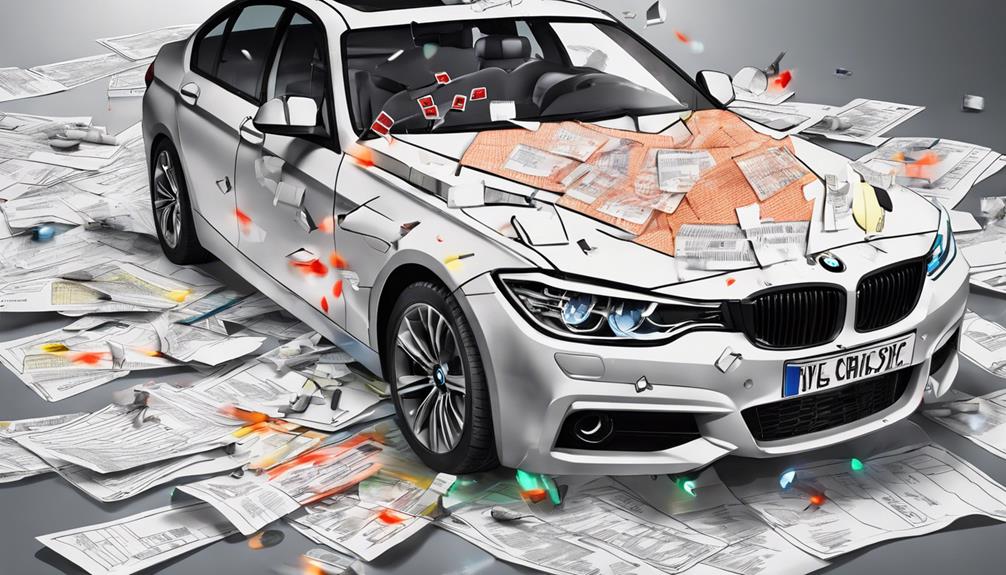
Prepare your wallet for a bumpy ride when it comes to the expensive repairs and maintenance costs of owning a used BMW. The power steering and rod bearings in these luxury vehicles are notorious for causing headaches and draining your bank account. Annual repair estimates can range from $1,000 to $2,000, with some models requiring repairs exceeding $1,000 per year.
Engine failures, coolant leaks, and timing chain issues are just a few common culprits contributing to these high costs. Imagine facing major repairs that surpass $1,000 annually, greatly impacting your ownership experience. These pricey fixes make used BMWs a less appealing choice for those watching their budgets.
Risks for Prospective Buyers
Considering purchasing one of the worst BMW models used? Be prepared for potential risks as a prospective buyer of a luxury car that can be expensive to maintain. Here are some key points to keep in mind:
- High Maintenance Costs: The worst BMW models often come with hefty maintenance expenses, making them a significant investment even after the initial purchase.
- Mechanical Failures: Buyers may encounter frequent mechanical issues with used BMWs, leading to unexpected repair bills and possible downtime.
- Resale Value Concerns: Due to reliability issues and costly repairs, the resale value of the worst BMW models tends to depreciate rapidly, impacting long-term ownership costs.
- Research Is Key: Before committing to a purchase, it's essential to thoroughly research the specific model's common issues and reliability ratings to avoid potential pitfalls down the road.
Being aware of these risks can help you make an informed decision when considering buying one of the worst BMW models used.
Frequently Asked Questions
What Is the Least Reliable Bmw?
When on the hunt for the least reliable BMW, beware of the infamous E60 M5 with its costly maintenance needs. The X5/X6 with N54 engine also spells trouble. Stick clear of pre-Y2K models for outdated tech and part scarcity.
What Are the Bad BMW Model Years?
Steer clear of the 2003 Z4, 2006 7-Series, 2008 5-Series, and 2011 X5 due to various issues. The 2013-2018 X1, especially the 2014 model, also has its share of problems. When it comes to buying used BMWs, choose wisely!
What Used BMW Is Best to Buy?
For the best used BMW, consider models like X1, X3, 2 Series, or 3 Series with the N20 engine for reliability. Look into X5 or X6 with the N63 V8 for power but watch out for issues. Always research well before buying.
Which Year BMW Is Most Reliable?
For reliability, consider BMW models from 2016 onwards. These years often boast improved technology and fewer reported issues. Opting for a more recent model can offer you a better ownership experience with fewer unexpected hiccups.
Conclusion
So, if you're thinking about buying a used BMW, steer clear of the X5/X6 N63 engine models and the 7 Series N63 engine.
Watch out for timing chain failures, battery deterioration, valve cover issues, leaks, and injector failures.
And don't forget about the direct injection system problems that could cost you big bucks in repairs.
Stay informed and tread carefully when considering purchasing a BMW with these potential issues.





